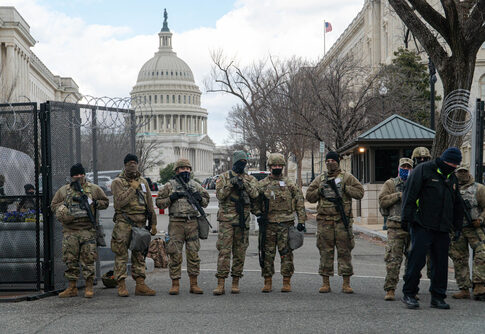A push for a nationalized police force threatens the very foundation of American federalism, stoking fears among conservatives who value local control and constitutional rights.
Federal Push for Centralized Policing Sparks Alarm
Recent proposals to create a national police force have triggered heated debate across the country. Supporters argue that unifying law enforcement would address inconsistencies and improve national security, but for millions of Americans—especially those who value individual liberty and local governance—such centralization represents a dangerous threat. The concept of a national police force has always been met with suspicion, as it risks concentrating power in Washington and eroding the authority of states and communities to govern themselves according to their values and needs.
America’s law enforcement tradition is deeply rooted in local control, a legacy of the Founders’ distrust of centralized authority. From the earliest colonial constables and watchmen to the rise of municipal police departments in the 19th century, policing in the United States has always reflected the country’s federal structure. Unlike many nations where a single national force maintains order, the U.S. boasts over 18,000 separate law enforcement agencies, each with its own policies and accountability mechanisms. This decentralized system was designed to safeguard liberty, giving communities the power to set their own standards and resist federal overreach.
Centralization vs. Local Autonomy: The Constitutional Stakes
Conservative Americans recognize that centralized policing poses a direct threat to the core principles of the Constitution. Federalism—the division of power between national and state governments—was built to prevent tyranny by dispersing authority. Proposals to create a national police force or impose uniform national standards on local departments threaten this balance, potentially undermining the Second Amendment, due process rights, and protections against unreasonable searches and seizures. History has shown that when too much power is concentrated in the hands of federal authorities, abuses become more likely, and local voices are drowned out. Families and communities risk losing input into decisions that affect their safety and way of life.
Efforts to centralize policing have accelerated following national crises, including terrorism and civil unrest. Some policymakers have pushed for conditional federal funding to force compliance with national mandates, while others have sought to deputize local officers for federal priorities. However, these moves consistently meet resistance from state officials, police unions, and grassroots organizations who warn that “one-size-fits-all” policies do not address the unique needs of diverse American communities. Instead, they risk increasing tensions, reducing public trust, and opening the door to government overreach that could affect everything from gun ownership to parental rights.
Expert Perspectives: The Dangers of a National Police Force
Experts in law enforcement and constitutional law caution that a national police force could threaten civil liberties and set a dangerous precedent. Comparative studies show that centralized police forces in other countries often struggle with legitimacy and accountability, leading to abuses of power. In the U.S., decentralization allows for community-tailored solutions and greater transparency, despite creating some accountability gaps. Civil rights groups and public safety advocates remain divided: some call for federal intervention to address systemic abuses, while others insist that local autonomy is essential for democracy. Any move toward centralization would have profound implications, potentially undermining the freedoms that set America apart.
Ultimately, the debate over a national police force is not just about crime or security—it is about who controls the levers of power in American life. For conservatives, the answer is clear: safeguarding local control, individual liberty, and constitutional rights must remain paramount, especially in an era of increasing government intervention and polarized politics.
Sources:
Early police in the United States – Britannica
Brief History of Policing – Town of Greenburgh, NY
Introduction to Policing, Chapter 1 (SAGE Publications)
Origins of Modern-Day Policing – NAACP

